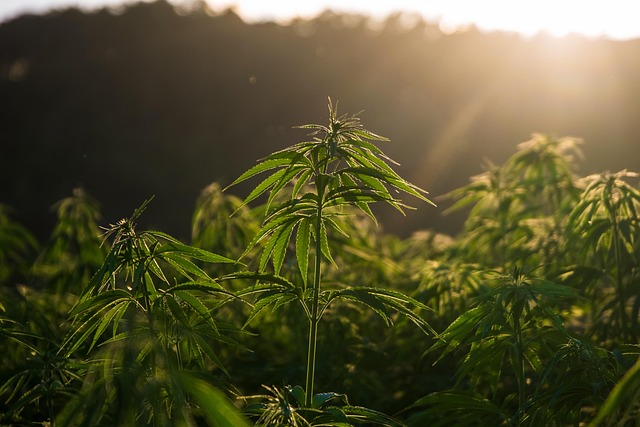Boost Your Pet’s Energy Naturally – Try Hemp Isolate Today!

Looking to give your pet a natural and safe energy boost? Hemp isolate is the proven solution. With…….
In the ever-evolving landscape of alternative therapies, hemp has emerged as a prominent player, capturing attention across various sectors, including the animal kingdom. Hemp isolate, a highly concentrated form of this ancient plant, is increasingly being explored for its potential benefits in pet care. The question on every pet owner’s mind is: Is hemp isolate safe for our furry friends? This article delves into the intricate world of hemp isolate, examining its safety, applications, and impact on the global pet care industry. We will explore various facets, from scientific research to market trends, to provide a comprehensive understanding of this natural remedy.
Hemp isolate refers to a highly refined product derived from the hemp plant (Cannabis sativa). It is created through a meticulous extraction process that separates specific cannabinoids, such as cannabidiol (CBD), from other compounds in the plant. This isolation results in a pure substance with minimal levels of tetrahydrocannabinol (THC), the primary compound responsible for psychoactive effects.
The core components of hemp isolate include:
The use of hemp dates back thousands of years, with evidence suggesting its cultivation and utilization in ancient civilizations for textiles, medicine, and food. In modern times, the global hemp industry has experienced fluctuations due to legal restrictions and societal perceptions. However, recent advancements in research and changing regulations have sparked renewed interest in hemp’s potential benefits.
Pet owners have shown a growing interest in natural alternatives for their companions’ well-being, prompting further exploration of hemp as a safe and effective option. The safety profile of hemp isolate, especially its lack of THC, has made it an appealing choice for those seeking complementary therapies for their pets.
The global hemp market has witnessed substantial growth over the past decade, with a particular focus on hemp-derived CBD products. According to a report by Grand View Research, the global CBD market size was valued at USD 7.6 billion in 2021 and is expected to expand at a CAGR of 38.5% from 2022 to 2030. Within this market, hemp isolate represents a significant segment, driven by its versatility and perceived safety.
Regional trends vary, with North America and Europe leading in terms of both research and consumer adoption. The United States, Canada, and several European countries have more lenient regulations regarding hemp cultivation and CBD products, fostering an environment conducive to innovation and growth. In contrast, other regions are catching up, with Asia-Pacific emerging as a promising market due to increasing health consciousness and changing legal frameworks.
Cross-border collaborations in research and development have been instrumental in advancing the understanding of hemp’s potential applications. International teams of scientists and veterinarians are working together to conduct clinical trials and study the effects of hemp isolate on various animal species, providing valuable insights into its safety and efficacy. These global efforts contribute to a more comprehensive body of knowledge, ensuring that pet owners worldwide can make informed decisions.
The economic landscape of hemp isolate is characterized by dynamic market forces and significant investment opportunities. As the demand for natural, alternative therapies grows, hemp-derived products are gaining traction in the pet care industry. This shift has attracted investors from various sectors, including agriculture, pharmaceuticals, and wellness.
Key market dynamics include:
Investment in the hemp industry has been substantial, with venture capital firms, private equity investors, and agricultural corporations leading the way. The growing acceptance of hemp-derived CBD in pet care products has attracted significant funding for research, product development, and market expansion. This influx of investment has contributed to the industry’s rapid growth and the emergence of innovative startups.
Advancements in extraction technology have played a pivotal role in producing higher-quality hemp isolate. Modern methods, such as CO2 extraction, offer precise control over the isolation process, ensuring minimal contamination and maximizing cannabinoid preservation. These techniques allow for the creation of highly pure hemp isolate, enhancing its safety and effectiveness.
Nanotechnology has opened new avenues for delivering hemp-derived cannabinoids to animals. Researchers are exploring nanoemulsions and nanoparticles to enhance the bioavailability and absorption of hemp isolate in pet formulations. This technology promises improved efficacy, faster action, and more consistent results, making it a game-changer in pet care products.
The integration of digital health solutions is transforming the way pet owners interact with their animals’ healthcare. Mobile apps and wearable devices are being developed to monitor pets’ vital signs, track medication schedules, and provide personalized recommendations for hemp isolate supplements. These tools empower owners to make data-driven decisions and ensure their pets receive appropriate care.
The regulatory environment surrounding hemp and CBD products varies widely across countries and regions. While some nations have embraced the potential of hemp, others maintain stringent restrictions. As a result, pet owners must navigate complex legal landscapes to ensure they comply with local regulations.
Key considerations include:
Within individual countries, specific legislation governs the production, sale, and use of hemp isolate in pet care products. For instance:
One of the primary challenges facing hemp isolate in pet care is addressing safety concerns and misinformation. Critics argue that lack of comprehensive research and potential contamination during production could pose risks to animals. Countering these claims requires robust scientific studies, strict quality control measures, and transparent communication with pet owners.
Ensuring product quality and standardization is essential for building consumer trust. Hemp isolate products may vary in terms of cannabinoid profiles, purity, and consistency. Establishing standardized testing methods and industry guidelines can help verify product claims and protect consumers from substandard or contaminated goods.
The evolving nature of regulations presents challenges for businesses and pet owners alike. Keeping up with changing legal frameworks can be burdensome, especially for small-scale producers and distributors. Clear communication from regulatory bodies and industry associations is crucial to guiding compliance efforts.
A clinical trial conducted by the University of California, Davis, focused on using hemp isolate for managing chronic joint pain in dogs. The study involved 50 dogs with osteoarthritis, dividing them into two groups. One group received a hemp isolate supplement, while the control group received a placebo. After 8 weeks, the hemp group showed significant improvements in mobility and reduced pain levels, as assessed by owners and veterinarians. This case highlights the potential of hemp isolate in alleviating joint pain without psychoactive effects.
A small-scale study explored the use of hemp isolate to reduce anxiety in cats, often triggered by loud noises or separation anxiety. The research involved administering a specific hemp isolate product to a group of anxious cats and monitoring their behavior. Results indicated a significant decrease in stress-related behaviors, suggesting that hemp isolate may offer a natural approach to feline anxiety management.
Equine dermatologists have explored the use of hemp isolate topicals for treating skin allergies and irritations in horses. A field study applied a hemp-based topical cream to horses with seasonal allergies, observing improvements in skin condition and reduced itching within two weeks. This application demonstrates the potential benefits of hemp isolate in veterinary dermatology.
The future of hemp isolate in pet care holds immense promise with ongoing research exploring its potential in various areas:
The global hemp isolate market is projected to witness substantial growth, driven by increasing pet ownership, rising humanization of pets, and growing acceptance of alternative therapies. The pet food and treat sector is expected to lead this growth, with innovative product formulations entering the market.
Asia-Pacific, Latin America, and parts of Africa present significant opportunities for hemp isolate in pet care. These regions are witnessing a rise in pet ownership and increasing health consciousness, creating a fertile ground for natural pet care products. Local regulations and cultural attitudes will play a crucial role in shaping the adoption of hemp-derived therapies.
The journey of hemp isolate in pet care has been one of exploration, innovation, and evolving understanding. From its historical use in ancient civilizations to its modern applications, this natural remedy has captured the attention of researchers, veterinarians, and pet owners alike. The global impact and trends highlight its growing significance, while economic considerations underscore the vast potential for growth and development.
Addressing challenges and criticisms through robust research, quality control, and regulatory compliance is essential to realizing hemp isolate’s full potential. As technology advances and knowledge expands, we can expect even more successful case studies and a deeper understanding of this versatile plant.
In conclusion, hemp isolate represents a significant advancement in the natural pet care movement. Its safety profile, combined with therapeutic benefits, makes it an appealing option for pet owners seeking alternative solutions. As the industry continues to evolve, hemp isolate is poised to become an integral part of modern veterinary medicine, enhancing the well-being and quality of life for our beloved pets.
Q: Is hemp isolate safe for all animals?
A: While hemp isolate is generally considered safe for most animals, it’s essential to consult with a veterinarian before introducing any new supplement. Individual animal responses may vary, and specific health conditions require professional advice.
Q: Can pets get high from hemp isolate?
A: Absolutely not. Hemp isolate contains minimal levels of THC (less than 0.3%), which is the primary psychoactive compound in cannabis. This concentration is too low to produce any intoxicating effects in pets.
Q: How do I know if a hemp product is safe for my pet?
A: Look for products that are third-party tested and certified for quality and safety. Reputable brands should provide transparency regarding their testing methods, cannabinoid profiles, and manufacturing processes.
Q: Are there any side effects of hemp isolate in pets?
A: As with any supplement, some pets may experience mild side effects like sleepiness or gastrointestinal upset when first introduced to hemp isolate. Discontinuing the product or adjusting the dosage typically resolves these issues. Severe reactions are rare.
Q: Can hemp isolate help with behavioral issues in pets?
A: Some studies suggest that CBD from hemp isolate may aid in reducing anxiety and stress, potentially helping with certain behavioral issues. However, it is not a substitute for professional training or veterinary behavior consultation.

Looking to give your pet a natural and safe energy boost? Hemp isolate is the proven solution. With…….

Looking to boost your stamina and focus naturally, without harsh chemicals? Hemp isolate is the safe…….